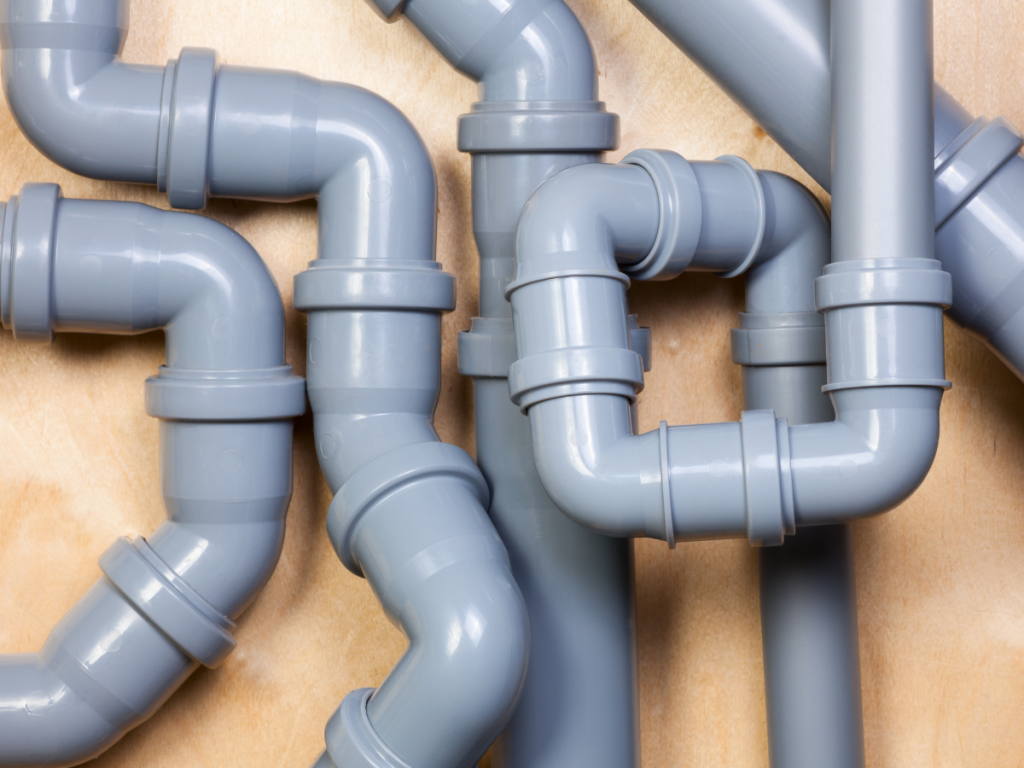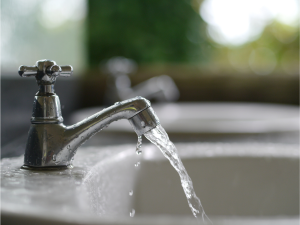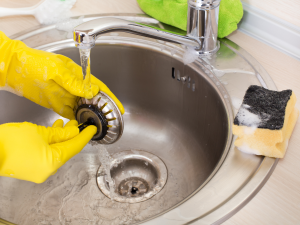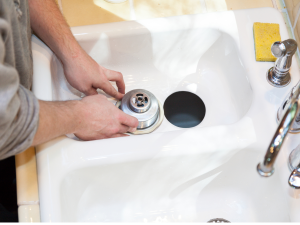If you hear a loud rumbling sound coming from your pipes when you turn your water on, it might be time to call a professional. Hearing water running through your plumbing system is normal, but rattling may indicate that something needs to be checked or refastened.
Don’t worry; we get calls from homeowners all the time with concerns about noisy plumbing and pipework. Here are a few reasons why your pipes might be making noise and what you can do to fix it.
Common Causes of Rattling Pipes
Got noisy pipes but don’t know what’s causing it? Read below to find out some of the common culprits.
Loose pipes
Loose pipes can make a rattling noise that starts when you turn on the water. When pipes aren’t fastened well, they move back and forth; the jerky movements of the loose pipe mounts can cause this.
Over time, this can lead to other problems like pipe bursts or leaks, so call a plumber right away to avoid more damage.
Trapped air
“Water hammering” is a loud bang or a thump often caused by trapped air in your water lines. This happens when water stops or changes direction quickly in your pipes. This isn’t good for your piping and can lead to other problems down the line. Contact a professional for assistance as soon as possible.
High water pressure
Have you ever heard the air rush out when opening a soda pop can? It’s because of the pressure. High pressure can make pipes rattle and constant pressure can damage joints and lines in your plumbing system over time, chipping away at its joints and seams and jeopardizing its integrity.
Your faucets may also dribble or squirt if there’s too much force behind them. If you notice this or a loud banging noise when you turn them on, consider decreasing your water pressure for a smoother, quieter flow. Your pipes will thank you!
Clogged pipes
Clogs may cause rattling. If there is a blockage or obstruction in your pipework, removing it can reduce the high water pressure and trapped air, eliminating the rattling.
Effects of Rattling Pipes
The consistent rattling noise from your pipes can lead to severe damage over time, such as broken seals or leaks. This disruptive plumbing issue can impact the overall water flow in your home, resulting in erratic water pressure and spraying when you use your faucets and showers.
More than just disrupting your water use, rattling and vibrations can lead to severe damage in your pipes, wreaking havoc on your home plumbing system. Plumbing damage isn’t usually cheap to fix, so it’s best to avoid it altogether!
Solutions for Rattling Pipes
Don’t let noisy pipes rattle you. Here are a few ways you can fix the annoying rattling of your pipes before it becomes a bigger issue:
Securing loose pipes
Loose pipes are a common cause of rattling. By securing them, you can solve the issues and quiet down your plumbing system. Here’s how to secure loose pipework:
- Locate the noisy loose pipe and inspect it to see if its mounts look loose.
- Tighten any shaky mounts.
- Look for any fasteners that may have fallen down, and replace any worn-out parts – both can lead to rattling sounds.
- Ensure all the washers within your pipes are fastened well, as high water pressure can shake these, too.
Important note: this is easier for pipes that are exposed. For pipework in your walls or flooring, contact a professional plumber.
Installing water hammer arrestors
Quieting the noise from your pipes is easy with water hammer arrestors. Water hammer arrestors stop air trapped in your pipes – also known as a water hammer – by removing the air in your water lines. Your piping system will be quieter and protected from high pressure damage.
Water hammer arrestors can mitigate:
- Noise, such as rattling and vibrations in your pipes
- Potential damage from rattling and high water pressure
- Gurgling sounds in drain pipes
Give us a call and one of our technicians can install water hammer arrestors in your plumbing system.
Adjusting the water pressure
Adjusting the water pressure in your home can significantly reduce pipe noise. Here are the steps to do it:
- Turn off your water main (this avoids leaks and spraying).
- Look out for a bell-shaped device – this is your pressure reducer.
- On top of it should be a screw that you can turn with a wrench to adjust water pressure (turn clockwise to increase and counterclockwise to decrease). Avoid making large changes at once.
- Once the adjustments have been completed, turn on each faucet in turn to monitor pressure levels.
Unclog your pipes
You may just have a clog that went unnoticed! Clearing clogs and partial clogs will reduce the internal pipe pressure, reducing the noise as a result.
- Check the sinks and tubs for slow water flow. If it looks like there may be a blockage, use a good-quality pipe cleaner or a drain snake tool to clear it.
- Flush any loose buildup by running hot water through the pipes.
- Call a professional plumber for help if you can’t clear it on your own.
Importance of Professional Plumbing Assistance
Professional plumbers know exactly how to identify what’s amiss. With a few checks, they can quickly and easily figure out if your water pressure is too high or if there’s air trapped in your pipework.
A plumbing technician can also secure any loose mounts for you and adjust your plumbing hardware. Don’t wait; get help as soon as your system starts acting strange. Even if it’s a quick fix, your home will be better off!
For Professional Plumbing Assistance, Call Clover Contracting.
At Clover Contracting, we understand how frustrating and intimidating plumbing problems can be. That’s why we make it our mission to provide reliable solutions that put your worries to rest. Our experienced plumbers are available 24/7 for any emergency, so you never have to worry about being left with a rattling mess of pipes. Don’t let the rumbling in your pipes go unchecked – book an appointment with Clover Contracting today for a quick and easy solution!




